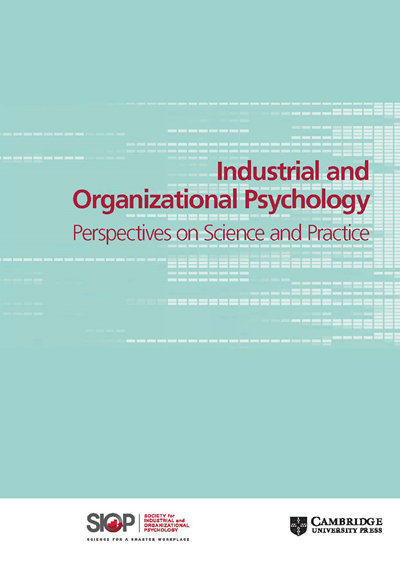It takes more than meta-analysis to kill cognitive ability
IF 4.3
3区 心理学
Q1 PSYCHOLOGY, APPLIED
Industrial and Organizational Psychology-Perspectives on Science and Practice
Pub Date : 2023-08-31
DOI:10.1017/iop.2023.36
引用次数: 1
Abstract
Methodology: Too many subjective decisions Methodological concerns related to Sackett et al. (2022, 2023) meta-analysis were already raised by Oh, Le, and Roth (in press). I would like to concentrate here on the conceptual discussion of the two focal methodological decisions of Sackett et al., which, in my view, results in the lowering of the general mental ability (GMA) validity estimates. First, to not attempt a correction for range restriction and, second, to not control for job complexity. Sackett et al. (2022, 2023) propose that range restriction is an issue mainly if the predictor in question was used in selecting the validation sample, and they argue that this would virtually never be the case in validation studies on GMA included in their meta-analysis, as this is unlikely that the same or similar GMA test scores used in validation procedures were also a part of the selection process. But, GMA was and still is considered one of the most important job performance predictors, as Kuncel, Ones, and Sackett (2010, p. 333) notice: “Cognitive ability is the workhorse of employee selection.” So why it is unlikely that GMA tests of some sort were used as a basis of selection procedures in validation studies? This is unclear to me and not explained sufficiently. But even if we assume that GMA tests were never used as a part of selection procedures in studies analyzed by Sackett et al. (2022, 2023), this still does not mean that employees were not directly and indirectly selected based on GMA. It seems that Sackett et al. (2022) misinterpret the GMA test score with GMA as a construct itself, but it is not cognitive ability tests that predict performance but cognitive ability. It is important to notice that various GMA tests scores to a large extend reflect a common construct (Johnson et al., 2008), which “involves the ability to reason, plan, solve problems, think abstractly, comprehend complex ideas, learn quickly and learn from experience” (Gottfredson, 1997a, p.13). This seems to be an ability developed in a time of the test, not the genetic potential or hereditary talent (see Schmidt, 2002). Assuming that it is unlikely that employees are directly hired based on their GMA is as assuming that it is unlikely that during selection procedures the abilities to plan, solve problems, reason, and learn from experience are directly taken into account by employers, but if these are not the basis for selection in most jobs, then what is? I argue that because of GMA’s nature and importance in our lives (Brown et al., 2021), GMA as a construct is a vital criterion for selecting employees for jobs even if there is no formal GMA test in recruitment procedures. Jobs vary in cognitive complexity (https://www. onetonline.org/find/descriptor/browse/1.A), and job incumbents are not randomly assigned to jobs, but applicants take different jobs and occupy different positions based on the fit between their cognitive abilities and the complexity of the job (Gottfredson, 1997b). Individuals gravitate to jobs that are congruent with their cognitive ability (Judge et al., 2010; Wilk & Sackett, 1996) thus if扼杀认知能力需要的不仅仅是荟萃分析
方法论:太多的主观决策与Sackett等人有关的方法论问题。(2022、2023)Oh、Le和Roth(出版中)已经提出了荟萃分析。我想在这里集中讨论Sackett等人的两个重点方法论决定的概念,在我看来,这导致了一般心理能力(GMA)有效性估计的降低。首先,不尝试对范围限制进行校正,其次,不控制作业复杂性。Sackett等人(2022023)提出,范围限制是一个问题,主要是如果在选择验证样本时使用了有问题的预测因子,他们认为,在他们的荟萃分析中包括的GMA验证研究中,情况几乎永远不会如此,因为验证程序中使用的相同或相似的GMA考试成绩不太可能也是选拔过程的一部分。但是,正如Kunsel、Ones和Sackett(2010,第333页)所指出的那样,GMA过去和现在都被认为是最重要的工作表现预测因素之一:“认知能力是员工选择的主力。”那么,为什么GMA测试不太可能被用作验证研究中选择程序的基础呢?这一点我不清楚,也没有充分解释。但即使我们假设在Sackett等人分析的研究中,GMA测试从未被用作选拔程序的一部分。(2022022023),这仍然不意味着员工没有根据GMA直接或间接被选拔。Sackett等人(2022)似乎将GMA考试成绩误解为GMA本身的一个结构,但预测成绩的不是认知能力测试,而是认知能力。值得注意的是,各种GMA考试成绩在很大程度上反映了一个共同的结构(Johnson et al.,2008),它“涉及推理、计划、解决问题、抽象思考、理解复杂想法、快速学习和从经验中学习的能力”(Gottfredson,1997a,p.13),而不是遗传潜力或遗传才能(见Schmidt,2002)。假设员工不太可能根据GMA直接被雇佣,就像假设在选拔过程中,雇主不太可能直接考虑计划、解决问题、推理和从经验中学习的能力一样,但如果这些不是大多数工作的选拔基础,那又是什么呢?我认为,由于GMA的性质和在我们生活中的重要性(Brown et al.,2021),GMA作为一种结构是选择员工工作的重要标准,即使招聘程序中没有正式的GMA考试。工作的认知复杂性各不相同(https://www.oneonline.org/find/descriptor/browse/1.A),在职者并不是随机分配到工作中的,而是根据他们的认知能力和工作复杂性之间的匹配程度,申请者从事不同的工作并占据不同的职位(Gottfredson,1997b)。个人倾向于与他们的认知能力相一致的工作(Judge等人,2010;Wilk和Sackett,1996),因此如果
本文章由计算机程序翻译,如有差异,请以英文原文为准。
求助全文
约1分钟内获得全文
求助全文
来源期刊

Industrial and Organizational Psychology-Perspectives on Science and Practice
PSYCHOLOGY, APPLIED-
CiteScore
7.70
自引率
10.10%
发文量
85
期刊介绍:
Industrial and Organizational Psychology-Perspectives on Science and Practice is a peer-reviewed academic journal published on behalf of the Society for Industrial and Organizational Psychology. The journal focuses on interactive exchanges on topics of importance to the science and practice of the field. It features articles that present new ideas or different takes on existing ideas, stimulating dialogue about important issues in the field. Additionally, the journal is indexed and abstracted in Clarivate Analytics SSCI, Clarivate Analytics Web of Science, European Reference Index for the Humanities and Social Sciences (ERIH PLUS), ProQuest, PsycINFO, and Scopus.
 求助内容:
求助内容: 应助结果提醒方式:
应助结果提醒方式:


